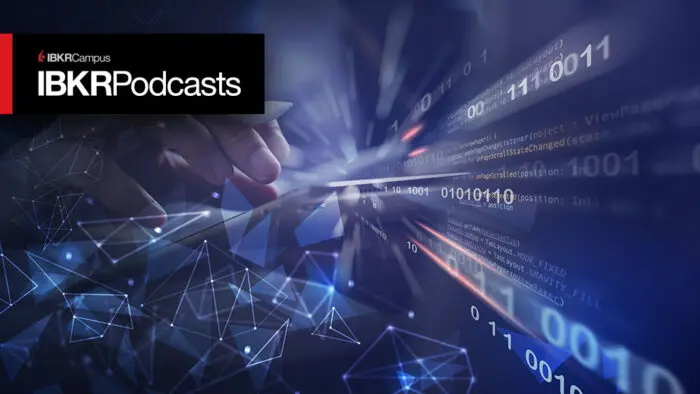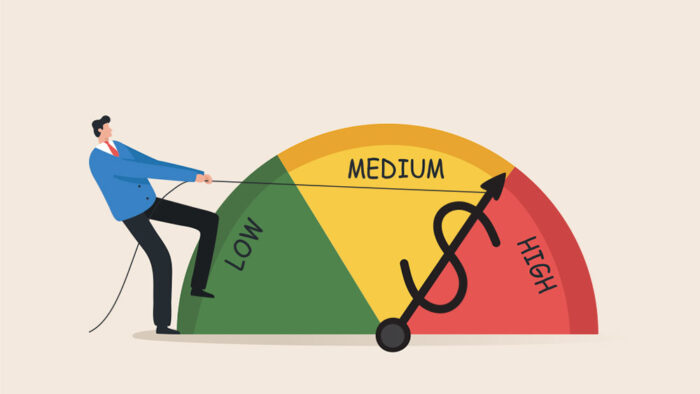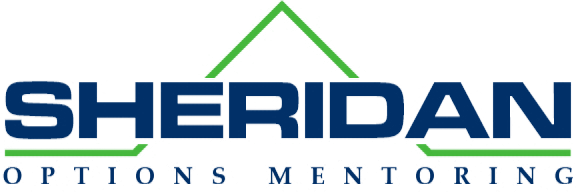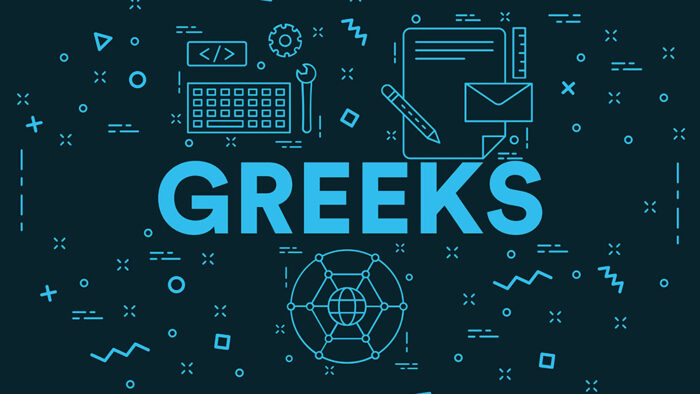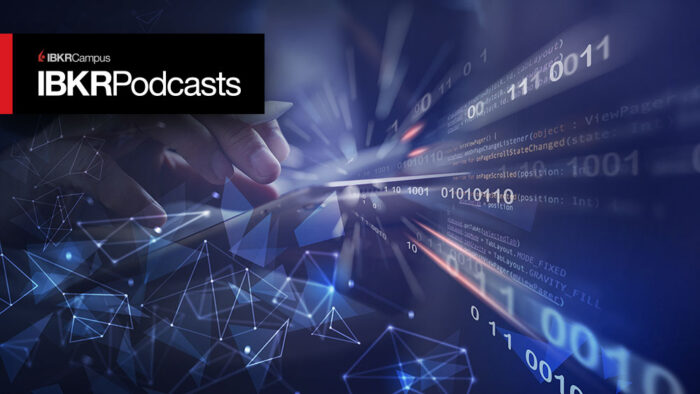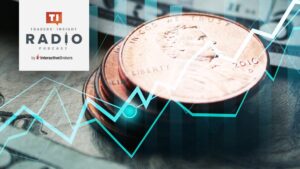Thomas Peterffy, Chairman and founder of Interactive Brokers, explains why IBKR’s proprietary best execution technology offers real cost savings for traders, and why the firm’s history as a pioneering market maker gives them insights that other firms simply don’t have.
Summary – Traders’ Insight Radio Ep. 22: A Penny Saved is a Dollar Earned (When You’re Trading Options at IBKR)
The following is a summary of a live audio recording and may contain errors in spelling or grammar. Although IBKR has edited for clarity no material changes have been made.
Steve Sosnick
Hi everybody, this is Steve Sosnick, Chief Strategist at Interactive Brokers, and welcome to Traders Insight Radio. Today we have a very special guest, our chairman, our founder Thomas Peterffy, and we have a very specific topic that we’re going to be discussing because it’s one that we feel very strongly about and that is Best Execution. Thomas, I’m going to let you take it away.
Thomas Peterffy
So, when people begin to think about using a stockbroker, quickly they come face to face with the issue of zero commissions, payment for order flow and best execution. Many brokers charge zero commissions and sell their clients’ orders to market makers who execute these orders by taking the opposite side of the order at a price that leaves them with a profit, part of which goes to pay the broker for the order.
Market makers are not free to execute these orders at just any price, but they must execute them at equal or better than the best visibly displayed price that is available to trade with that order. That is the duty of best execution that all brokers must abide by at all times. This is a strictly enforced SEC rule.
The best bid and offer is often referred to as the NBBO or National Best Bid Offer. It is collected every moment from all the exchanges, where bids and offers are posted for each stock and option. The NBBO can be as tight as a penny wide and as much as $0.20 or $0.30 or even wider. The NBBO tends to be wider near the opening of the market and when markets are volatile.
There is one other factor I must introduce into this discussion, the dark pool, which is a place where brokers may post bids and offers that cannot be seen by anyone. Brokers or brokers’ customers may pose bids and offers that cannot be seen by anyone. If a buy order meets a sell order in a dark pool a trade will take place. So IBKR has two different types of accounts: IBKR Lite, where IBKR will sell the orders to market makers just like other brokers do and deliver the executions to the customer who pays no commission.
The other type of account is IBKR Pro where customers pay a commission, but IBKR does not sell their orders. It rather executes them by searching for another side at the best price it can find. The way that happens is that IBKR has convinced a number of money managers, large traders, and brokers to post resting orders in its dark pool.
These institutional traders want to buy or sell specific stocks, but do not need an immediate execution. What they do want is anonymity and the good execution price. They do not want to show their hand at the exchange and push prices against themselves. For example, assume that A has 100,000 Amazon to sell. He does not want to show that by posting his offer at the exchange for fear that other offers could come in at lower prices from traders who will sell ahead of him hoping to buy back what they sold at an even lower price as A wants to complete his sale.
So instead, A is willing to post this offer in IBKR dark pool knowing that nobody will find out about it. Now, as buy orders are coming in from IBKR customers, they get executed against these large sell orders. Some traders may want to sniff out these larger orders by probing the dark pool to find out where they are. But IBKR has put in software defenses for that.
One special feature that IBKR dark pool orders have is that IBKR provides several order types such as pegged to bid or offer [IBKR ATS Pegged-to-Best], which is bid plus X cents or offer minus X cents. So, this bid plus X cents say, bid plus one cent, can float with the exchange bid and it will always be a penny higher than the best bid of the exchanges.
Another one is pegged to the MidPrice [Pegged to Midpoint]. The MidPrice is the middle of the NBBO, so a peg to MidPrice offer will always float with the MidPrice of the NBBO. Then there is pegged to MidPrice plus/minus X cents [IBKR ATS Pegged-to-Midpoint]. Now, the most popular one is best back to the MidPrice +/- X with a limit. Which is an order that will bid the lowest price at which it still is the highest of all competing bids to buy or offer the highest price at which it still is the lowest relative to other competing offers. But in no event will it go further than the indicated limit in the order.
Steve Sosnick
So, meaning that if let’s say the market is 21 cents / 23 cents it’ll be pegged to whatever the best offer is and then, but not below it, if it, but not below, whatever the limit is.
Thomas Peterffy
No, no, no. So, if the price is $0.20 or $0.26, the MidPrice being $0.23. And you see this order is a MidPrice minus at best, MidPrice minus a cent. Then it will not ever bid higher than $0.22.
Steve Sosnick
Yes, but then you also said there’s a limit on it, so it won’t go above…
Thomas Peterffy
Yes, there is the limit.
Steve Sosnick
Yes, the limit.
Thomas Peterffy
So, it will not go above. So, if there is no competing bid, it will be the same as the NBBO, it will be $0.20. If that other $0.20 bid comes in it will be $0.21. If another $0.21 bit comes in, it will be $0.22 but now it will not go over that. Even though maybe MidPrice is $0.23, so it could potentially go to $0.23 or even $0.24.
Steve Sosnick
The reason I wanted to clarify that is because the limit — the terminology “limit” — is very relative to this specific order– specific to the NBBO, not specific to a limit order. That’s what I wanted to clarify.
Thomas Peterffy
’cause this is best with a limit.
Steve Sosnick
Yes.
Thomas Peterffy
Right. OK, all these orders can be cancelled or routed out if they are not traded after X minutes. So, that is another option that all these orders have.
Now, IBKR has nearly 2,000,000 customers who would like to execute their orders at a very good price relative to the momentarily prevailing NBBO. So, whenever IBKR gets an order, it immediately sends it into the dark pool and tries to match it with a pending order and get an execution near the MidPrice.
If IBKR cannot find the other side, it will go to other venues that according to continuously accumulating statistics, is the most likely to have the best price for this order. This is how IBKR provides best executions for stocks, for IBKR Pro customers.
Steve Sosnick
I think it’s very important to remind people that the vast majority of our customers have opted for the pro technique rather than IBKR Lite. And I think that is proof of concept in itself.
Thomas Peterffy
That’s true, and that’s important for us because you know, the more orders we get, the better executions we can provide.
Steve Sosnick
I think it also is customers’ realization that we’re working on their behalf rather than just sort of using them as a source of our revenue. We are the ones doing what we should be doing, which is seeking out the best execution on their behalf.
Thomas Peterffy
So now, how you’re working on their behalf will be even more visible when I get to options executions. And these are a bit more complicated because OCC, the Options Clearing Corporation, requires that all option trades it clears take place at an exchange.
Steve Sosnick
Yes.
Thomas Peterffy
The option commissions that online brokers charge are very similar, with the exception of volume discounts for large traders, but executions can be quite different. Most brokers send their option orders to market makers the same way as they do with stocks. IBKR does not.
Similarly to dark pools, IBKR has currently attracted 15 market makers, large traders, large option traders as potential counterparties to its customers’ orders and still working on getting more. These 15 include all the large market makers who buy orders from online brokers other than IBKR.
So let us for the moment try to understand how an option market maker conducts his business. I must remind the audience that I was the first person to ever build an automated market making platform and ran that for over 25 years, so I have a pretty good idea of what I’m talking about.
Steve Sosnick
Yes.
Thomas Peterffy
A market maker, a “quote”, market maker… [laughs]
Steve Sosnick
Hang on, you and I’ve been doing this for so long [chuckles]. A market maker puts out a two-sided price in every in every strike, puts out continuous bids and offers with sizes in all their assigned strikes and classes on a continuous basis. That’s the market maker. You’ve been doing this so long, it’s too obvious to you. You have to step back a little.
Thomas Peterffy
He makes a bid and offer for each option and submits them to the exchange as limit orders. He hopes that he will buy and sell a lot of options at those prices. As the stock prices move around, he moves his market or quote with them based on the option formula he is using. This is of course all done by computers, as millions of auction prices are moving around all day long and the response time for any event must be within milliseconds or microseconds.
Since the market maker’s buy price is lower than his sell price, you’ll probably end up with a profit after having bought and sold a lot of options, but there is one crucial problem. His buys and sells will not cancel each other. I mean, on occasion they will, but most of the time they will not.
If you buy some options and most often sell others and pretty soon accumulate a huge position being long some options in some strikes and expirations and short others. For example, I remember when we were in the market making business, we usually had about 7% of the total open interest.
So, this is a big …this is the major issue for a market maker.
Steve Sosnick
Yet with all that open interest, we endeavored to be pretty well hedged. We were generally quite well hedged.
Thomas Peterffy
Right, as long as this huge position is fairly neutral across the many different groups of stocks that most often tend to move together, that is fine. But that is almost never the case. The market maker must control his exposure. Accordingly for any market maker at any moment, the buying of any option is almost never an immaterial proposition. It will most often either help or hurt the neutrality of his position.
In other words, buying that specific option, given his existing positions, will either reduce or increase his exposure to future price movements in the market in general. So, when buying that option reduces his exposure, then he would like to buy and not sell, and vice versa. At times, when the market makers exposure becomes really large, reducing it becomes really important and the urgency to buy or sell a specific option is becomes really compelling. But buying that option on the exchange and taking out the offers, pushing the prices higher, is very expensive because it causes immediate losses. So, this is the crucial problem of the market maker and for you to understand best execution you really have to understand this.
When that market maker gets an opportunity to buy an option without pushing the price is higher at the exchange, that is a huge benefit to him that he is willing to pay for. IBKR is trying to give him that opportunity and give its customers a really good price.
Now, how does that happen? Anytime IBKR receives a customer order to buy or sell an option, it begins an IBKR auction without disclosing if the order is to buy or sell. It immediately requests a quote from its 15 liquidity providers. The 15 in the system will send an automated response within milliseconds. Those codes will reflect each market maker’s relative willingness to do the trade. The one who will want to buy the most will bid highest and the one who wants to sell the most will offer lowest.
Along with their quote, each liquidity provider also tells IBKR at which exchange they would like to consummate the trade. IBKR now notifies the winner and takes the options to the directed exchange and begins an exchange auction. At the exchange auction, the winner of the IBKR auction is compelled to provide the same price that he won the IBKR auction with. If nobody else betters that price IBKR does the trade with him, and the customer order is filled. On very few occasions it happens that the exchange on the exchange auction somebody provides a better price and in that case our customer will get that better price.
Thomas Peterffy
So, this is it. Now you could ask, “why is it that other brokers are not trying to do what IBKR does?”
The answer is number one: they like the payment they get from the market makers. But perhaps even more importantly, they do not really understand what market makers do and how they do it. IBKR having been the largest option market maker for well over 25 years gives us a huge advantage in having built our brokerage systems where we still employ many of the modules we originally built for market making. It enables us to give better execution prices.
Unfortunately, customers do not understand or appreciate the importance of option execution prices. Just one cent price difference is a dollar per contract. If you trade options often, those dollars add up pretty quickly and can make all the difference in your trading results.
Thank you for listening to me.
Steve Sosnick
Sure, I just want to follow up with a couple things. Again, number one is the customers have figured out that these dollars add up, which is why they are most–
Thomas Peterffy
Some have, but most of them haven’t. I mean, the fact is that we have about 9% of the option volume, but Schwab and Fidelity have more.
Steve Sosnick
Yeah, so our customers understand the value of those dollars, the —
Thomas Peterffy
Our customers do but it’s not as much for our customers as for others.
Steve Sosnick
Well, I’m going to tell you a conversation I had with a young man who was graduating from university with a degree in computer science, starting at one of those market making firms that that you referred to, and he was asking me this weekend, “Why does everybody just do PFOF [Payment for order flow]? What about best execution?”
And I explained to him the idea of best execution and how his firm makes money by the fact that most customers are lazy and don’t seek out best execution and once it– Yeah, well, the brokers on behalf of the customers you’re correct.
Thomas Peterffy
The customer is — it would really behoove them to look for the broker that gives them the best execution.
Steve Sosnick
And the other sad part of the story was I explained this all to him and said about market making and he said “I didn’t know Interactive Brokers was ever involved in options market making. Why would you do such a thing?” Then I had to explain to him the history of the firm and said, “ask some of the old timers at your firm about Timber Hill in the old days.”
Thomas Peterffy
At one time market making used to be a glorious vocation
Steve Sosnick
Yes, but really the key takeaway for everybody here is we are working as hard as we can on our behalf to get you better prices. And if you’re trading elsewhere, this is why you should be trading here.
Thomas Peterffy
If we can on our customers’ behalf, you get better prices, yes.
Steve Sosnick
Exactly, yes, exactly.
Thomas Peterffy
And we are proud of that.
Steve Sosnick
Yes, and the customers who are here, who have figured that out, are taking advantage of it. If you are not trading with us now, please do because it’s a compelling reason to do so. Those dollars do add up. And remember something else — when you’re getting something for free, it generally means that you are the product. You don’t want to be the product of your brokerage firm. You want your brokerage firm working for you and we’re going to do that.
Anything else to add Thomas?
Thomas Peterffy
Steve this is — I spoke my heart into this I tried to be as dry and explanatory as I could be, as logical as I could be, and I hope that people will understand what I said in spite of my accent [laughs].
Steve Sosnick
I think they will, and I think we’ll leave it at that.
This was a very informative episode of Interactive Brokers Traders’ Insight Radio with of course our special guest Thomas Peterffy, and I thank you all for listening and if you have any questions, please you know where to find us and we’ll be more than happy to answer any questions on your behalf.
Thank you everybody.
Thomas Peterffy
Thank you.
Disclosure: Interactive Brokers
The analysis in this material is provided for information only and is not and should not be construed as an offer to sell or the solicitation of an offer to buy any security. To the extent that this material discusses general market activity, industry or sector trends or other broad-based economic or political conditions, it should not be construed as research or investment advice. To the extent that it includes references to specific securities, commodities, currencies, or other instruments, those references do not constitute a recommendation by IBKR to buy, sell or hold such investments. This material does not and is not intended to take into account the particular financial conditions, investment objectives or requirements of individual customers. Before acting on this material, you should consider whether it is suitable for your particular circumstances and, as necessary, seek professional advice.
The views and opinions expressed herein are those of the author and do not necessarily reflect the views of Interactive Brokers, its affiliates, or its employees.
Disclosure: IBKR Lite
For additional details about IBKR Lite please visit: https://www.interactivebrokers.com/en/index.php?f=45196
Disclosure: IBKR ATS
For additional details about IBKR Alternative Trading System (ATS) please visit: https://www.interactivebrokers.com/en/index.php?f=48654
Disclosure: Options Trading
Options involve risk and are not suitable for all investors. Multiple leg strategies, including spreads, will incur multiple commission charges. For more information read the "Characteristics and Risks of Standardized Options" also known as the options disclosure document (ODD) or visit ibkr.com/occ




